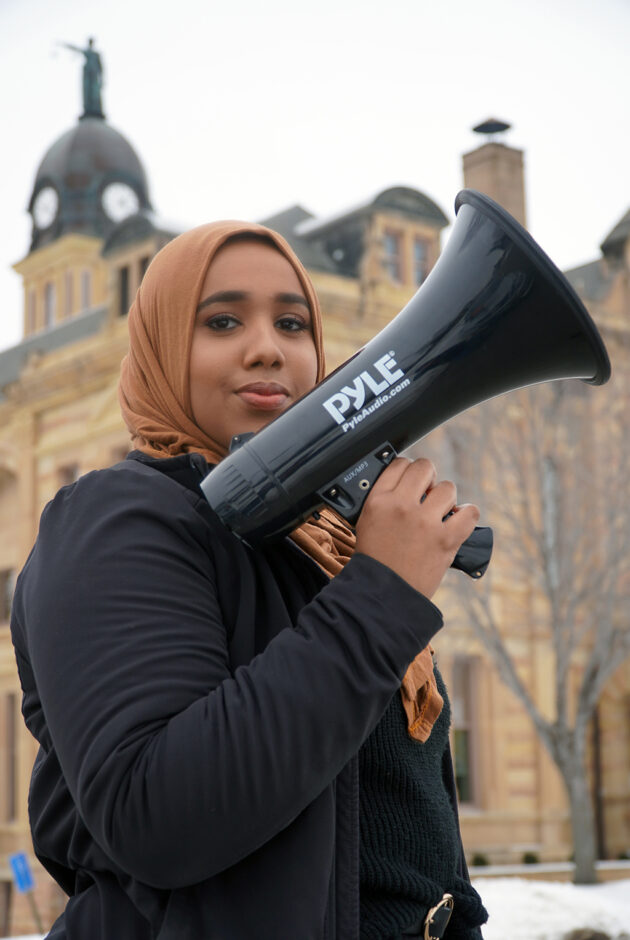In the wake of George Floyd’s death, Anisa Omar ’20 made headlines in the Mankato area in her push to have Student Resource Officers—who are members of the public safety department—taken out of the area’s public schools. In January, her story went national on a PBS program, “I Rise.”
In cinema verité, non-narrated style, the program chronicled several individuals of color around the country in their struggles to change things through election campaign work and activism.
Using edited and sharply paced footage shot locally [often by the subjects themselves], the program followed the arc of Omar’s efforts from forming a group called “Ignite the Youth” to community rallies to the school board vote that denied the request for change.

A lifelong Mankato resident, Omar said she had not been one to push back at authority when it came down lopsided against kids of color.
“I had lots of issues in the school system,” she said. “But I always felt like, oh, that’s just life. It’s unfair and I just have to navigate it. I didn’t know there was a way to advocate for myself and for others who are in that situation. I just kind of took it as it is, that you can’t change much so you just continue as forward as you can go.”
What changed was her time at Minnesota State Mankato and becoming involved in student government. She served as the president of the Minnesota State University, Mankato Student Government during her last year in school and found herself advocating on behalf of her fellow students of color.
That, she said, is when she realized the power of advocacy.
When George Floyd was killed, she co-founded Ignite the Youth to get high school students involved and to encourage them to speak out against what they see as wrong. Her work with the group was born out of a desire to change the SRO situation in schools but to also infuse younger people with confidence to speak out. Even those on the same side seemed entrenched and dismissive to younger voices, she said.
“It was [prompted] by just the lack of acknowledgement and the lack of respect for youth in the community. Like, ‘you’re too young to understand. Let those who’ve been doing it for more than 20 years do it.’ Or ‘you’re just now getting into this, what do you really know?’
“We wanted to create a safe space for young individuals to express themselves without that hierarchy of ‘we’ve been doing this for so long,’” Omar said. “We wanted to do something where we could see tangible change. Focusing on schools was the answer, a chance to address the way they grew up with ‘oh, that’s just the way it is here.’”
“What she believes in, she will fight for every single day,” said Andrew Trenne, the current president of the University’s student government. Trenne, also a political science major, served as vice-president to Omar. Describing his upbringing in Chaska, Minn., as knowing only “one Minnesota,” working with Omar influenced his outlook on life and his approach to his role as student president.
“It’s crazy to see the skills she used in student government and at the university and how that changed into activism in the community,” Trenne said.
Now graduated and still living in Mankato, Omar is aiming at obtaining a law degree, with an emphasis in either family law or civil rights. Or both. Either way, the activism will remain.
“The reason I’m split between civil rights attorney and family is I do see my activism continuing in my work every day.”
Speak Your Mind